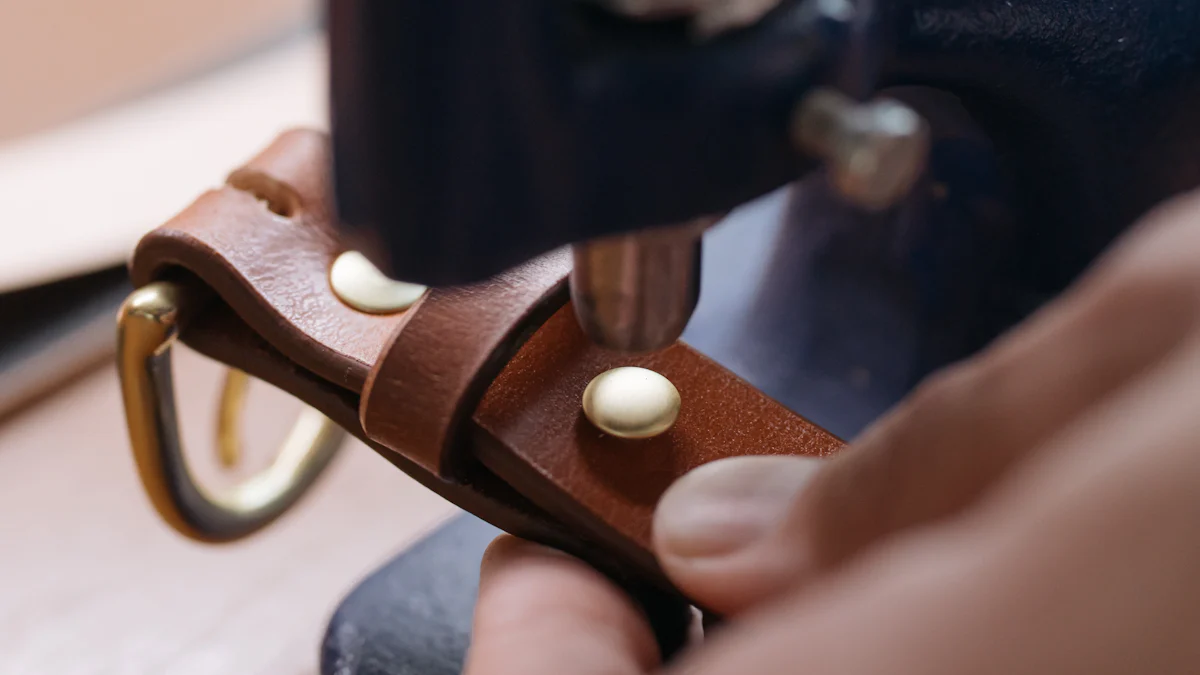
Finding the right lighter making machine can transform your business. It’s not just about production; it’s about efficiency, safety, and meeting demand. Whether you’re scaling up or starting fresh, machines like the Swing Machine For Lighter Making Machine offer precision and reliability. Choosing wisely ensures you stay competitive while maximizing your investment.
Key Takeaways
- Know how many lighters you need to make. Pick a machine that fits your needs and can grow with your business.
- Think about the kind of lighters you will make. Make sure the machine works for that type to keep quality high.
- Check how automated the machine is. Choose between manual, partly automatic, or fully automatic based on how much work you want to do.
Types of Lighter Making Machines

When it comes to choosing the right lighter making machine, understanding the different types available is key. Each type has its own strengths and is suited for specific business needs. Let’s break them down.
Manual Lighter Making Machines
Manual machines are the simplest option. They require hands-on operation, which means you or your workers will handle most of the process. These machines are great if you’re just starting out or have a small production scale. They’re affordable and easy to maintain. However, they can be slow and labor-intensive. If your business is growing, you might find manual machines limiting. But for niche or custom lighter designs, they can be a perfect fit.
Semi-Automatic Lighter Making Machines
Semi-automatic machines strike a balance between manual effort and automation. They handle some of the repetitive tasks, reducing the workload for your team. This type of lighter making machine is ideal for medium-sized businesses. It offers faster production speeds compared to manual machines while still being cost-effective. On the downside, you’ll still need some labor to oversee operations. If you’re looking to scale up without a huge investment, semi-automatic machines are worth considering.
Fully Automatic Lighter Making Machines
Fully automatic machines are the top choice for high-volume production. These machines handle everything from start to finish with minimal human intervention. They’re fast, efficient, and consistent, making them perfect for large-scale businesses. While the upfront cost is higher, the long-term benefits often outweigh the expense. You’ll save on labor costs and boost productivity. If your goal is to dominate the market, a fully automatic lighter making machine is the way to go.
Key Factors to Consider When Choosing a Lighter Making Machine
When you’re picking the right lighter making machine, there are several important factors to think about. These will help you match the machine to your business goals and ensure smooth operations.
Production Capacity and Scalability
How many lighters do you need to produce daily, weekly, or monthly? A machine’s production capacity should align with your current demand. But don’t stop there—think about the future. If you plan to grow, choose a machine that can scale up with your business. A semi-automatic or fully automatic lighter making machine might be better for handling higher volumes.
Type of Lighters to Be Manufactured
Not all machines can make every type of lighter. Are you producing disposable lighters, refillable ones, or something unique? Make sure the machine you choose is designed for the specific type of lighter you want to manufacture. This ensures quality and consistency in your products.
Automation Level and Labor Requirements
Do you want to reduce labor costs or keep a hands-on approach? Fully automatic machines require less human intervention, while manual and semi-automatic machines need more oversight. Think about your team size and how much time you can dedicate to production.
Safety Features and Compliance Standards
Safety should always come first. Look for machines with built-in safety features like emergency stop buttons or protective shields. Also, ensure the machine complies with industry standards and regulations in your region.
Energy Efficiency and Environmental Impact
Energy-efficient machines save money and reduce your carbon footprint. Check the machine’s energy consumption and whether it uses eco-friendly materials. This is especially important if sustainability is part of your brand.
Manufacturer Support and Maintenance Services
Reliable support can save you from costly downtime. Choose a manufacturer that offers good customer service, training, and maintenance packages. A well-maintained lighter making machine will last longer and perform better.
Budget and Return on Investment (ROI)
Finally, think about your budget. While manual machines are cheaper upfront, fully automatic machines can offer better ROI over time. Calculate how quickly the machine will pay for itself based on production speed, labor savings, and product quality.
Pros and Cons of Different Lighter Making Machines

Manual Machines: Advantages and Disadvantages
Manual machines are a great starting point if you’re running a small-scale operation or testing the waters in the lighter manufacturing business. They’re affordable and easy to maintain, which makes them appealing for businesses on a tight budget. You don’t need advanced technical skills to operate them, so training your team is quick and straightforward.
However, manual machines come with limitations. They’re slow, which can make it hard to meet high production demands. Since they require constant human involvement, labor costs can add up over time. If you’re aiming for efficiency or planning to scale up, manual machines might not be the best long-term solution.
Semi-Automatic Machines: Advantages and Disadvantages
Semi-automatic machines offer a middle ground between manual effort and full automation. They speed up production by automating repetitive tasks, which reduces the workload for your team. These machines are ideal for medium-sized businesses looking to increase output without breaking the bank. Plus, they’re more versatile than manual machines, allowing you to handle a wider range of lighter designs.
On the flip side, semi-automatic machines still require some human oversight. You’ll need workers to monitor operations and handle occasional adjustments. While they’re faster than manual machines, they can’t match the efficiency of fully automatic options. If your business is growing rapidly, you might outgrow a semi-automatic machine sooner than expected.
Fully Automatic Machines: Advantages and Disadvantages
Fully automatic machines are the powerhouse of the lighter manufacturing world. They handle the entire production process with minimal human intervention, delivering consistent quality and high output. If you’re running a large-scale operation, these machines can help you dominate the market. They also reduce labor costs significantly, which boosts your overall profitability.
The main drawback is the upfront cost. Fully automatic machines are expensive, and they require a significant investment. Maintenance can also be more complex, so you’ll need reliable manufacturer support. But if you’re thinking long-term, the efficiency and productivity gains often make the investment worthwhile.
Choosing the right machine can make or break your business. Focus on aligning the machine’s features with your goals and production needs. Take time to evaluate your budget, current capacity, and future plans. Don’t hesitate to consult manufacturers or industry experts. Their insights can help you make the best decision for your business.
FAQ
What’s the best lighter making machine for a small business?
Manual or semi-automatic machines work best for small businesses. They’re affordable, easy to maintain, and perfect for low to medium production needs.
How do I maintain a lighter making machine?
Follow the manufacturer’s maintenance schedule. Regularly clean the machine, check for wear and tear, and replace parts as needed to ensure smooth operation.
Are fully automatic machines worth the investment?
Yes, if you need high-volume production. They save on labor costs, boost efficiency, and deliver consistent quality, making them ideal for scaling up your business.
Tip: Always consult with manufacturers to understand the machine’s maintenance requirements and long-term benefits before purchasing.


